Popular hashtag hidden from TikTok during anti-police protests in the United States
Video platform TikTok appeared to restrict
Popular hashtag hidden from TikTok during anti-police protests in the United States
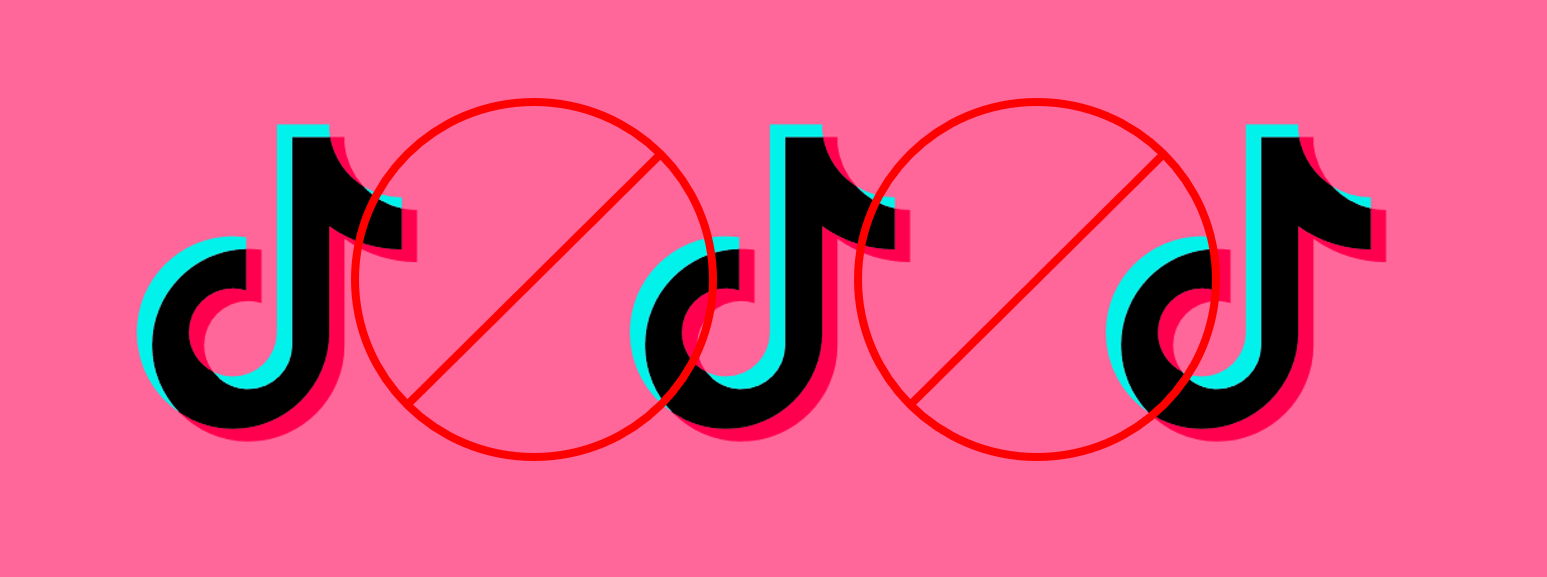
Video platform TikTok appeared to restrict #acab amid protests around the death of George Floyd at the hands of a Minneapolis police officer
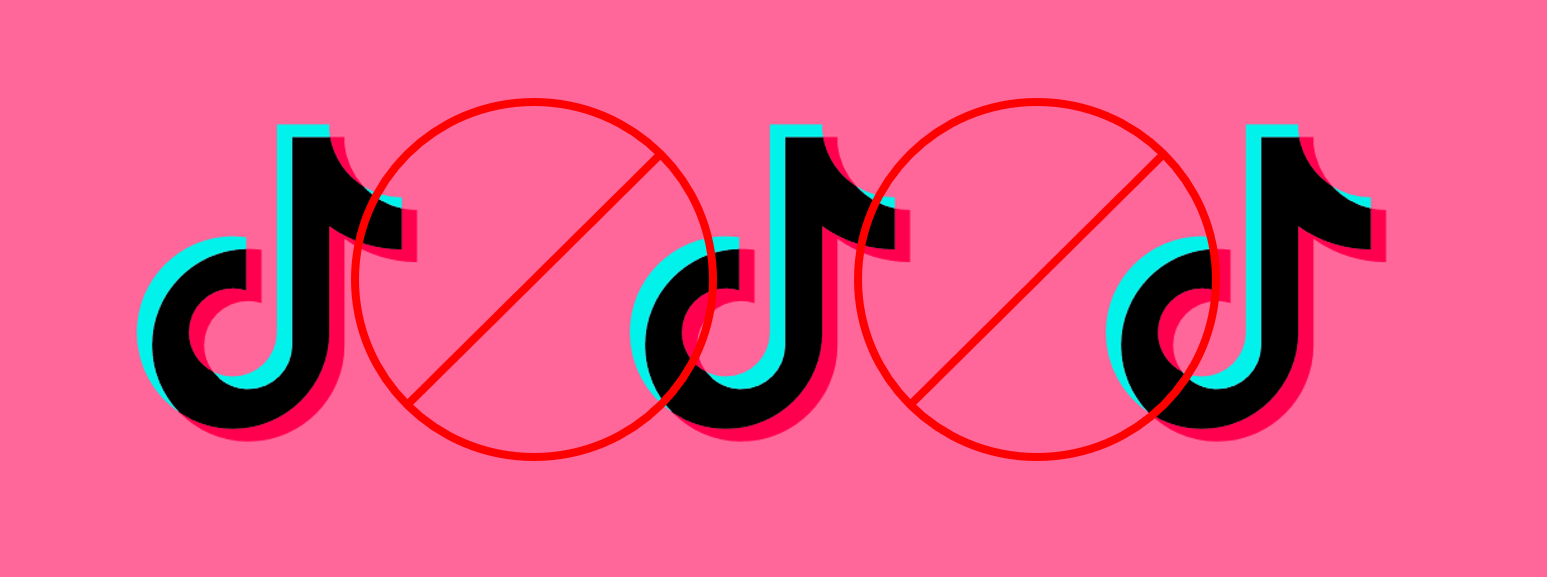
Disclaimer: This post includes obscene language.
As protests against police brutality following the death of George Floyd continued, TikTok seemingly restricted search results around a hashtag used to denigrate the police for a period of time.
TikTok, a social media platform whose popularity has been growing in the United States in recent months, is owned by a Chinese firm and has faced increasing scrutiny over its data collection and content moderation practices. After blocking a user who posted about China’s treatment of Uighur Muslims, the company faced censorship allegations that it denied, telling the BBC in November 2019 that “TikTok does not moderate content due to political sensitivities.” More recently, in March 2020, TikTok formed a “content moderation committee” after previous moderation guidelines to suppress videos with “ugly” users and “dilapidated” environments were uncovered.
On the evening of May 28, TikTok appeared to be blocking #acab — an acronym for “all cops are bastards” — from being searched as Minneapolis and other U.S. cities witnessed another night of protests and unrest. Some TikTok users appeared to be posting first-hand video of the protests as they occurred. TikTok’s exclusion, and then inclusion, of one method users could search for anti-police content is significant given the circumstances of the protests, which have focused on racially motivated police brutality and scrutiny of the methods police use to subdue protestors, with a particular focus on the use of tear gas and rubber bullets. The DFRLab did not find open-source evidence as to why TikTok removed search results for the hashtag, though possible reasons for doing so range from misapplied content moderation to political targeting to fears of inciting violence
On both the mobile and web versions of TikTok, searching for #acab yielded no results as of 6:32 p.m. EDT on May 28. It is unclear for how long TikTok removed the hashtag. Meanwhile, on Twitter, mentions of #acab were higher on May 27 and May 28 than on any previous day in May, according to a Sysomos query, with a peak of almost 130,000 mentions.
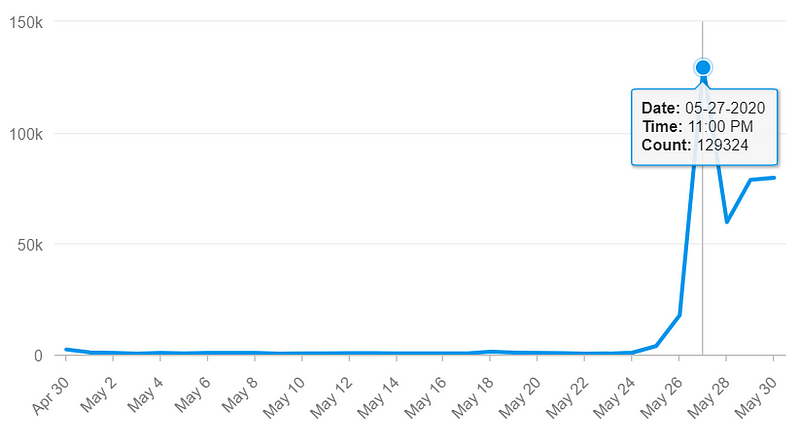
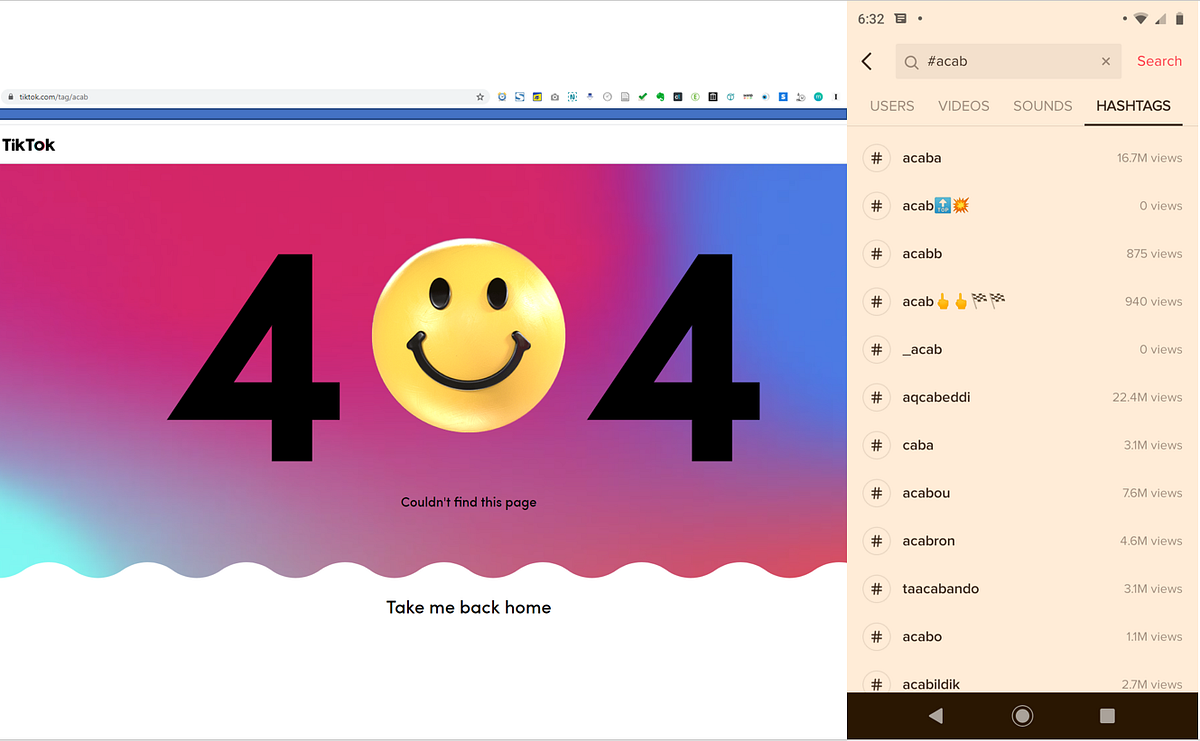
Other hashtags related to the protests — such as #GeorgeFloyd and #BlackLivesMatter — did yield results on TikTok.
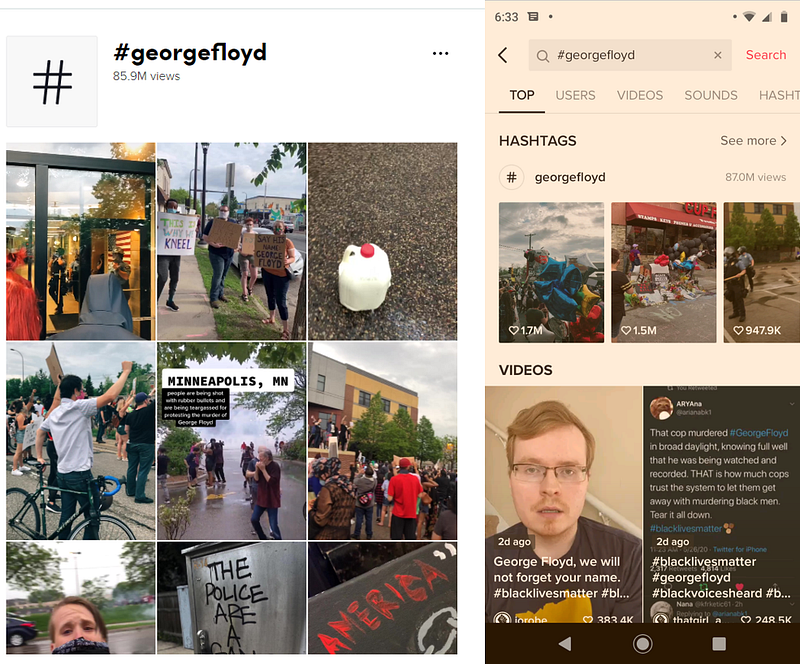
Typically, hashtags on TikTok have dedicated hashtag pages, which can be found on the mobile app by either clicking on a hashtag tagged in a video or by searching for the hashtag in the search bar. Doing this leads to the hashtag’s dedicated page, which includes the number of views the hashtag is getting, as well as a list of videos that are tagged with the hashtag and an option to “favorite” the hashtag for quick referral later. On the web app, hashtags can be found by typing “tiktok.com/tag/” and then the hashtag of interest in the URL bar, such as “tiktok.com/tag/cats.” While many TikTok users did tag videos as #acab during this time, there was no dedicated hashtag page for #acab, and #acab did not appear in the search results.
On May 29, as of 11:40 a.m. EDT, however, #acab had reappeared in the search results on both the mobile and web versions of TikTok, so clicking on the hashtag led to a dedicated #acab hashtag page. As of publication, #acab has garnered 96.5 million views, but due to TikTok’s opaque reporting practices, it is unclear whether these views are representative of the true number of #acab views.
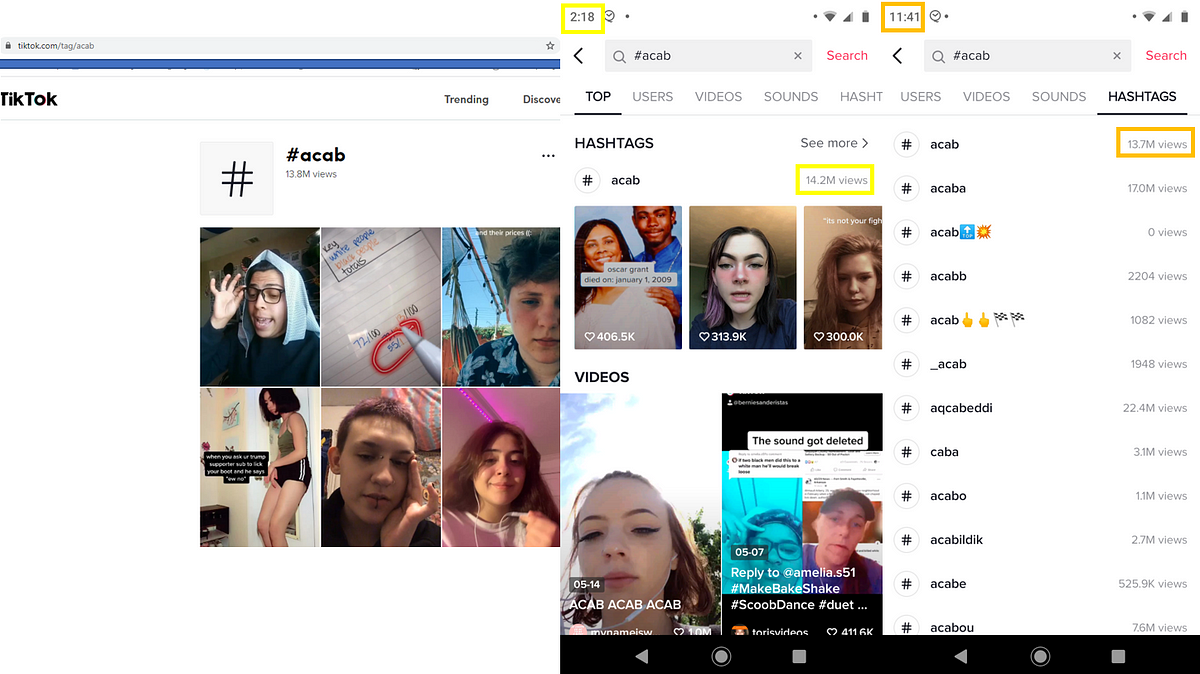
While it is unclear just how long #acab was possibly blocked on TikTok, the timing of its reappearance coincided with the ongoing protests against the police. Other social media platforms have made efforts to moderate certain Minneapolis protest-related content as well, including Twitter, which placed a warning banner over a May 29 President Trump tweet the company considered to be “glorifying violence.”
Everything in moderation
As of 3:00 a.m. EDT on June 1, the full form of #acab — #allcopsarebastards — still does not show up on TikTok. The exclusion of this hashtag, however, might be explained by the fact that it includes the word “bastard.” Other hashtags that include certain bad words, such as “#bitch” or “#bastard,” also do not have dedicated hashtag pages. However, variations of “bastard” — such as “#fatbastard” — do have their own hashtags that populate when “#bastard” is searched, indicating that, if word use is the reason for the content moderation, the policy is inconsistently applied. Additionally, this could imply that TikTok’s ill-defined content moderation policies focus on specific words and phrases.
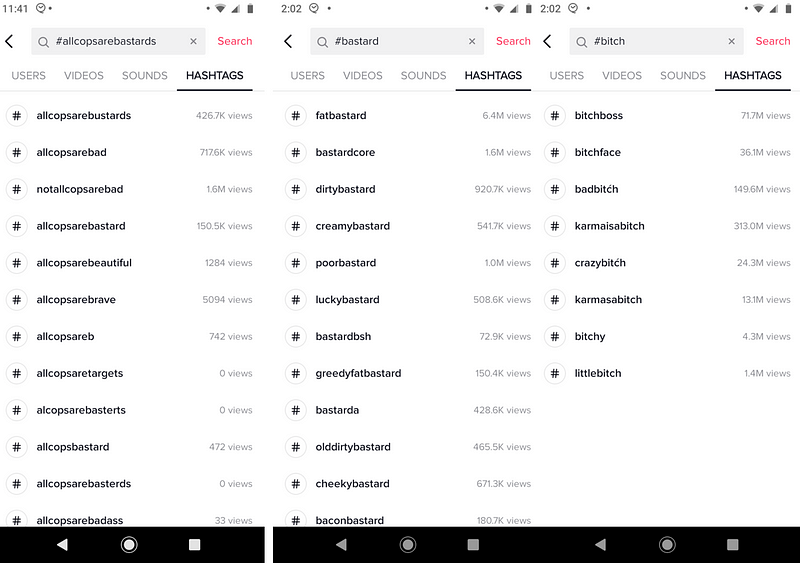
A related example of content moderation inconsistency is #fuckthepolice, which does not have a dedicated hashtag page and is not searchable on either the web or mobile app. At first glance this appears to be a result of content moderation around the word “fuck.” When users search #fuck in the search bar of the mobile app, they are directed to a modified version of the word, “#fucķ” — using a diacritical accent below the “k” as a means of circumventing the blocked word — but #fuck does have a dedicated hashtag page on the mobile app buried on the “hashtags” tab, albeit no web page. Two hashtags with the same first two words as #fuckthepolice, #fuckthepaper and #fuckthehaterzzzzzz, do have dedicated hashtag pages and are easily searchable on the mobile app but also do not have web pages.
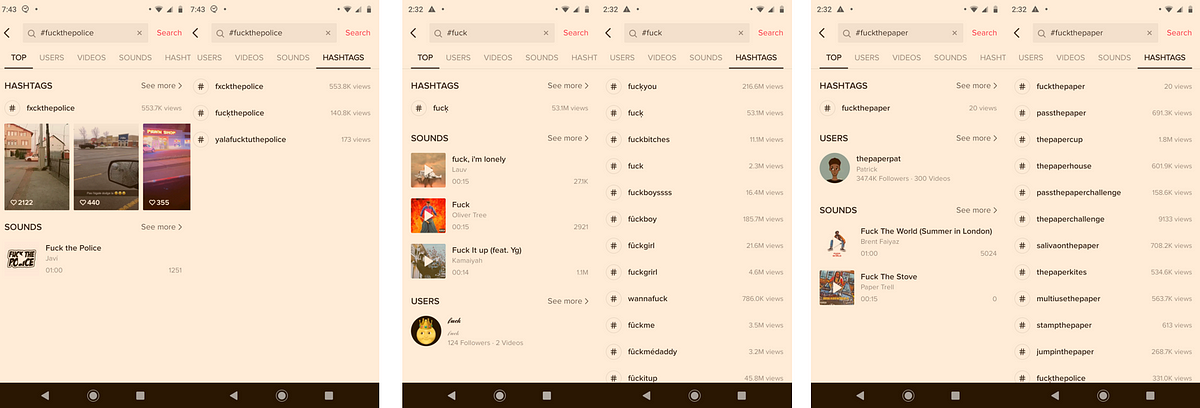
While #fuckthepolice was unsearchable on TikTok, its mentions on Twitter have dramatically increased with the George Floyd protests, according to data from a Sysomos query, with a peak around 11:00 p.m. EDT on May 30 of 10,699 uses.
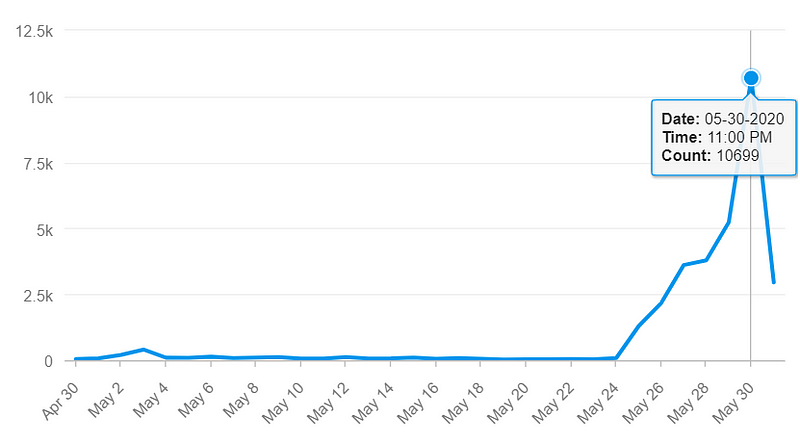
Separately, alongside what appeared to be actual blocked content were incorrect claims as well. A tweet from May 28 at 7:31 p.m. EDT claimed that TikTok was censoring #GeorgeFloyd and #BlackLivesMatter, using screenshots from the pre-upload stage of posting a video to show that these hashtags did not appear. On May 29, New York Times reporter Taylor Lorenz debunked the tweet by explaining that, while hashtags were not showing up in the pre-upload stage, they were showing up after upload, in the search stage. In contrast, #acab and #fuckthepolice did not show up in the search stage, indicating that this was not part to which the “temporary glitch” Lorenz was referring.
Conclusion
While the usage of hashtags like #acab and #fuckthepolice on social media platforms like Twitter increased during the protests for George Floyd, TikTok seemingly blocked the hashtags from search results on its app. While users could still use the hashtags in TikTok videos and comments, making hashtags unsearchable appears to eliminate the hashtag’s dedicated web page, erasing one of the main methods a user has for finding and interacting with content on the platform. The subsequent reappearance of #acab is unexplained, as is the continued block of #fuckthepolice, but the timing — coinciding with global protests against police brutality stemming from the death of George Floyd — is uncanny.
Alyssa Kann is a Research Assistant with the Digital Forensic Research Lab.
Follow along on Twitter for more in-depth analysis from our #DigitalSherlocks.

